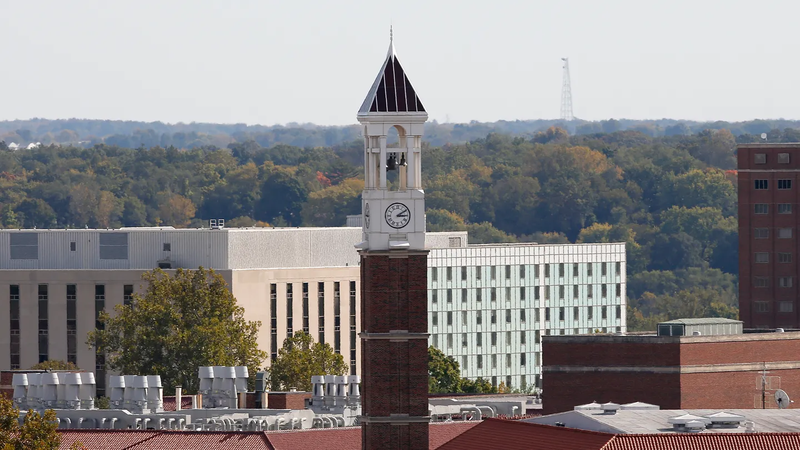
How China Exploits U.S. Universities to Train Its Military Scientists — A Wake-Up Call for America
A new congressional report has revealed a deeply troubling truth: American universities are educating thousands of Chinese nationals tied directly to the People’s Liberation Army (PLA), Beijing’s military machine. Funded by American taxpayers, these students gain access to cutting-edge research in sensitive fields like nuclear engineering, computer science, and artificial intelligence — all while maintaining ties to institutions that serve as “central nodes” in China’s military-civil fusion system.
This isn’t simply a case of foreign students seeking higher education. It’s an orchestrated strategy by the Chinese Communist Party (CCP) to siphon America’s knowledge, technology, and innovation to strengthen Beijing’s military ambitions. If left unchecked, it represents one of the gravest long-term threats to U.S. security.
The House Select Committee on China’s latest findings show that at just one U.S. university, more than 400 Chinese nationals were conducting federally funded research in fields directly relevant to national defense. Across six universities examined — Maryland, Illinois Urbana-Champaign, Carnegie Mellon, University of Southern California, Purdue, and Stanford — every single one admitted students from China’s elite defense research schools, known collectively as the “Seven Sons of National Defense.”
These Chinese institutions, including Beihang University, Harbin Institute of Technology, and Northwestern Polytechnical University, maintain extensive partnerships with state-owned weapons manufacturers and defense labs. Beihang alone, on the U.S. Entity List since 2001, boasts nine defense laboratories and openly proclaims its adherence to “Xi Jinping Thought.” Yet its students have been identified on campuses across the United States.
At Harbin Engineering University — once the PLA Military Engineering Institute — students were represented at 83% of surveyed U.S. universities. These are not random individuals; they are part of a coordinated pipeline linking America’s open research environment to China’s tightly controlled military development apparatus.
Perhaps most alarming is how these students are funded. Universities often claim that foreign students subsidize domestic ones by paying higher tuition. But the report dismantled that narrative. At one school, Chinese nationals made up more than 20% of the Ph.D. population, yet contributed only 0.2% of tuition revenue.
Most of their education was funded not by personal payments, but by federal grants, state subsidies, or university assistantships — meaning American taxpayers are effectively underwriting the training of PLA-linked scientists. The classrooms and labs that should serve U.S. innovation are, in many cases, being used to advance Beijing’s ambitions.
As Rep. John Moolenaar, chairman of the committee, put it: “We cannot allow America’s taxpayer-funded research labs and classrooms to serve as staging grounds for Beijing’s military ambitions.”
The issue is not limited to students. Faculty collaborations further widen the channels of influence and technology transfer.
Though Purdue has since implemented strict safeguards, including banning foreign adversary funding and tightening intellectual property protections, the risk of damage already done cannot be ignored.
Some skeptics may dismiss these concerns as theoretical. But recent prosecutions prove otherwise.
These are not abstract fears. They are documented incidents showing how Beijing uses “non-traditional collectors” — students, researchers, and visiting scholars — to infiltrate American institutions.
Not all universities have turned a blind eye. The University of Illinois Urbana-Champaign (UIUC), after intense scrutiny, announced the termination of dozens of agreements with Chinese universities, including its flagship joint engineering institute with Zhejiang University — an institution tied directly to China’s defense establishment and intelligence services.
UIUC also canceled priority admission pathways for Chinese students, ended joint degree programs, and shut down summer training initiatives with Shanghai-based institutions. Lawmakers commended Illinois for “leading by example,” proving that universities can — and must — unwind risky partnerships once the dangers are fully understood.
Other schools, such as UC Berkeley, Georgia Tech, and the University of Michigan, have likewise begun unwinding collaborations with Chinese entities, particularly those linked to the China Scholarship Council (CSC), a state-run funding body described as part of Beijing’s global “technology transfer apparatus.”
The threat outlined in the committee’s report is not confined to university administrators or defense analysts. It directly concerns every American citizen.
The committee has put forward several recommendations:
These are practical steps that can help safeguard America’s innovation ecosystem from being hijacked by Beijing. They do not call for xenophobia or blanket restrictions but for targeted measures against individuals and institutions directly tied to the PLA.
The image of American professors and labs training scientists for the PLA should send chills down the spine of every citizen. This is not the exchange of ideas in a free academic marketplace. It is the systematic exploitation of American openness by an authoritarian regime intent on surpassing the U.S. militarily, technologically, and economically.
China’s strategy is clear: use students and faculty exchanges as Trojan horses, turning America’s strengths into vulnerabilities. The question is whether the U.S. — from lawmakers to universities to everyday citizens — will heed the warning.
The report is a reminder that vigilance is not optional. The cost of complacency is measured not just in dollars wasted but in the erosion of America’s security and future.